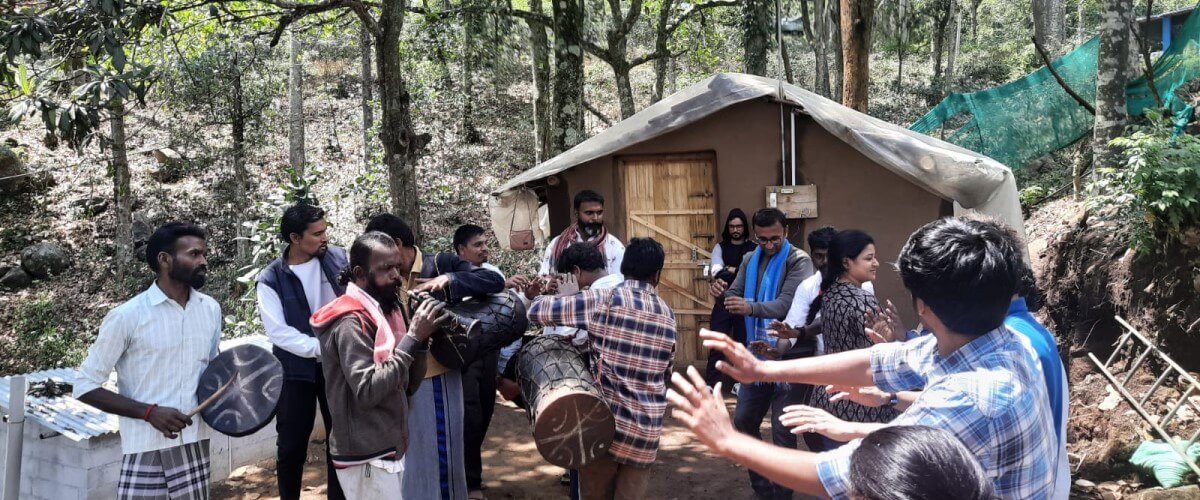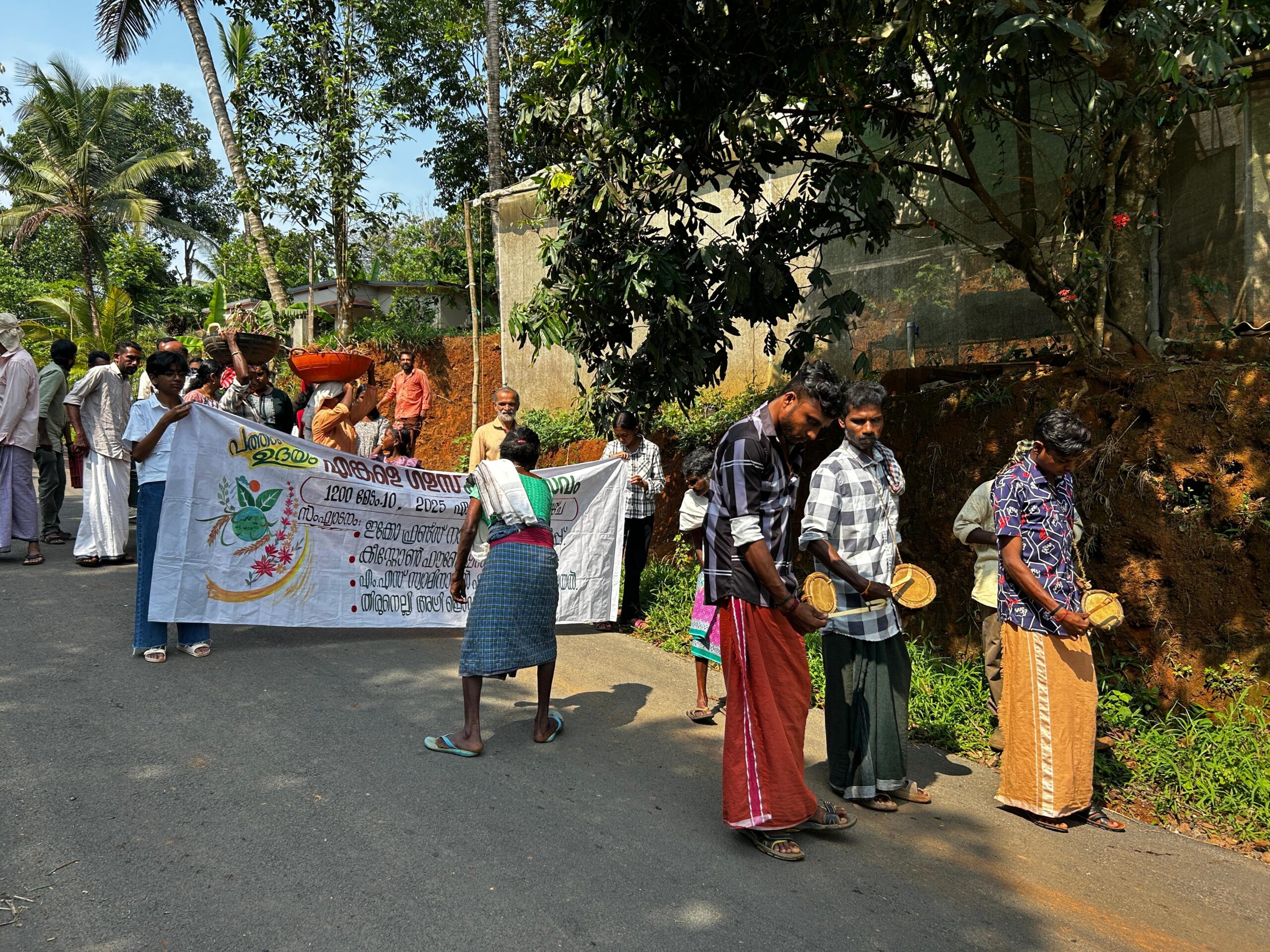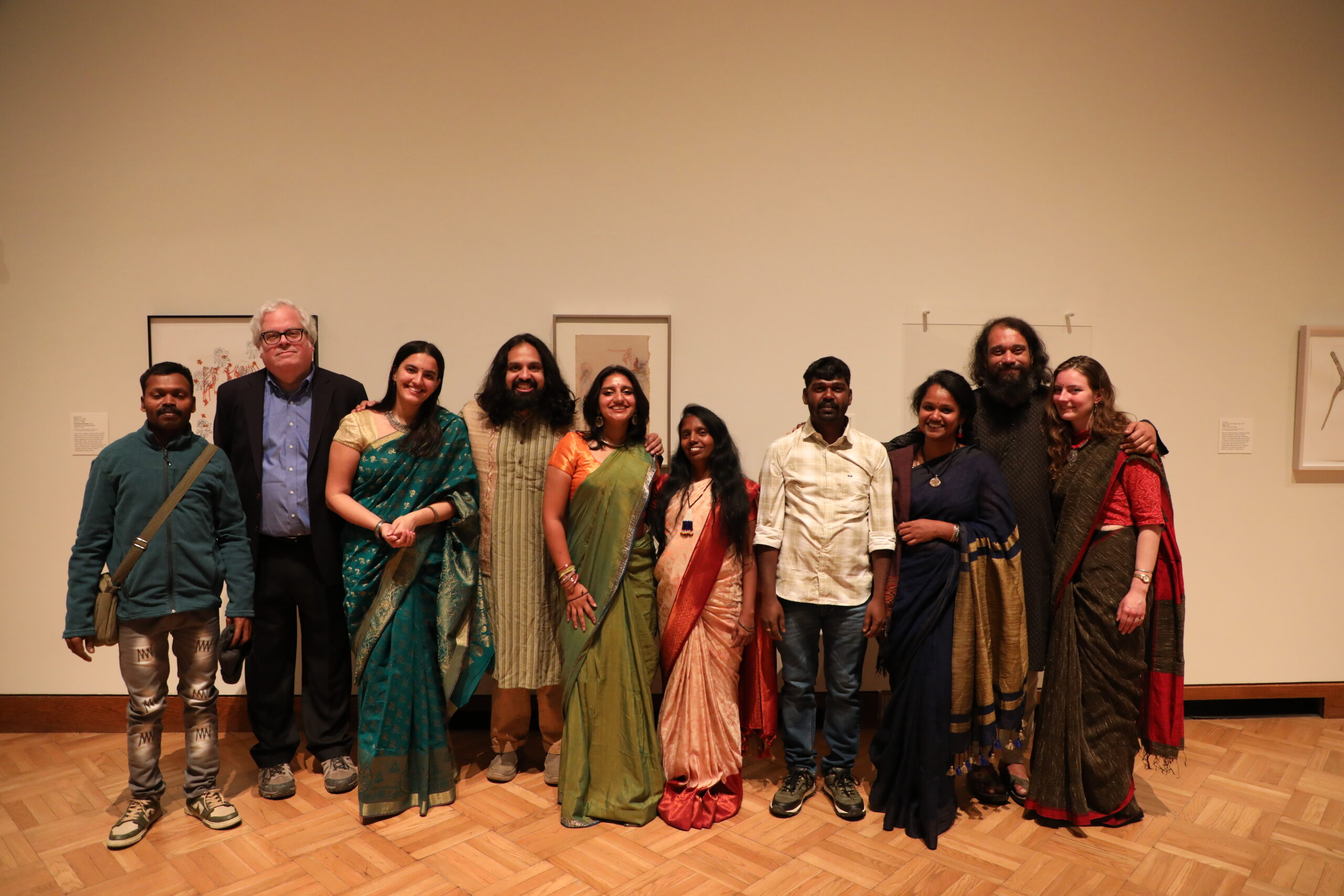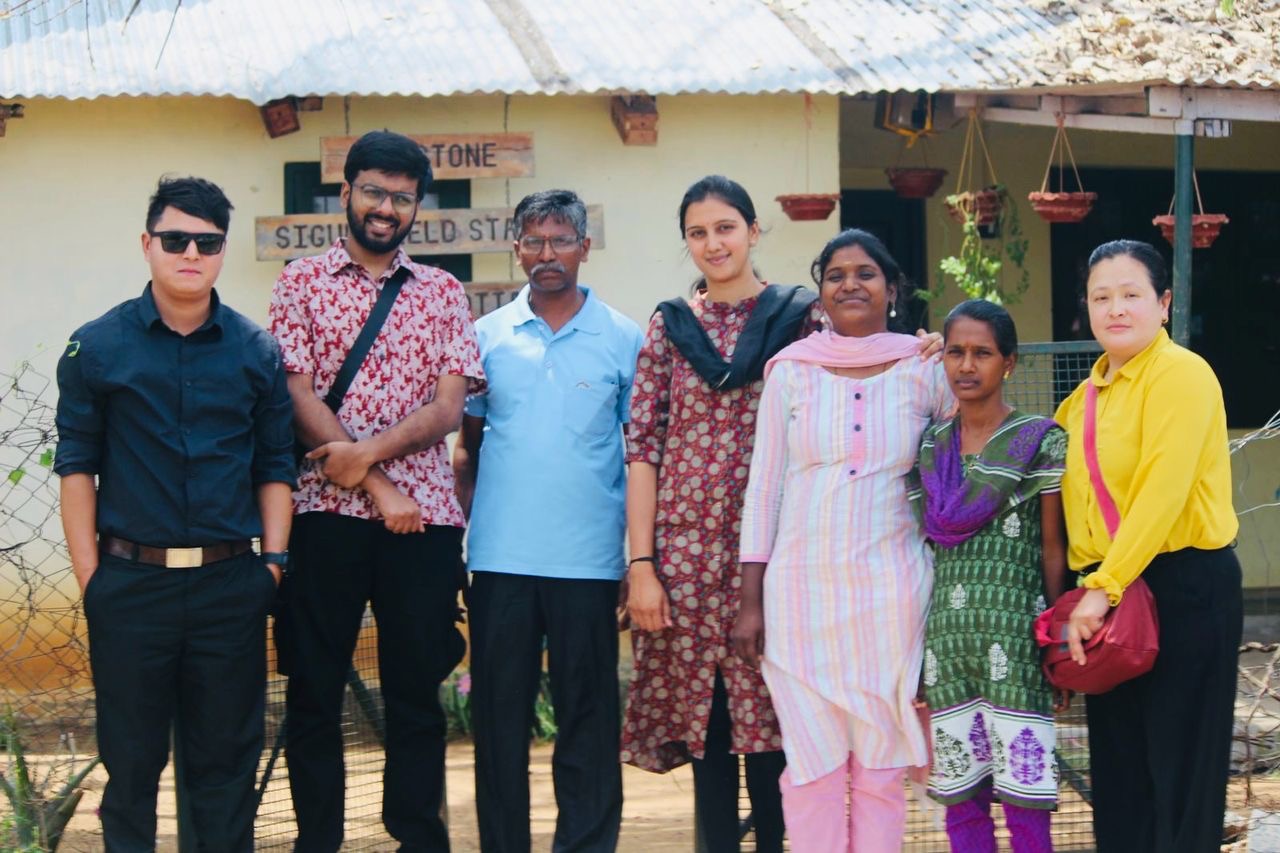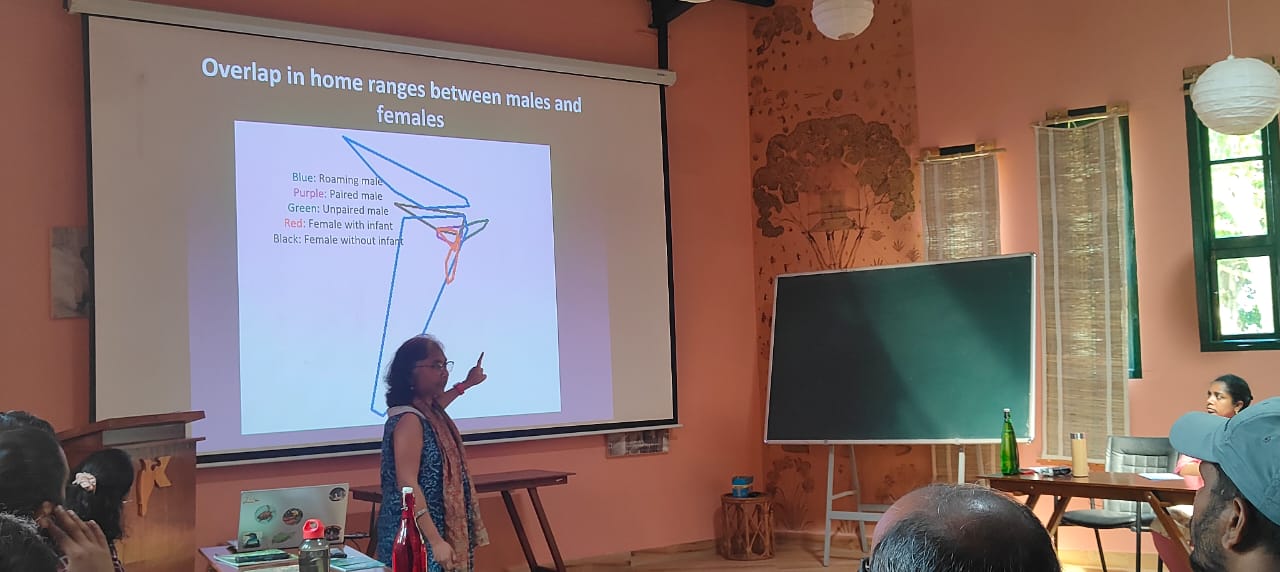March 19, 2023
By Ranjani Prasad, Programme Coordinator – People & Nature Collectives
This month saw a visit by students from the Disom Leadership School, helmed by the Disom Foundation. The 15-month long course is offered to young leaders across the country. The activities of the school are described as “a movement to nurture ethical leaders in the political and social space”.
The word Disom originates in Jharkhand (Disom in Santali and Disum in Ho and Mundari). It is the homeland of one’s soul; a land of indigenous values where governance is collective conscience, where nature is of the highest value, and where community comes before self. The values of this group are aimed at building a “lived experience of deep democracy and leadership that shares responsibilities and decision-making with communities; driven by a spirit of service”.
The current batch is the second since its founding and comprises remarkable young leaders from across India. There were 17 students from Uttar Pradesh, Madhya Pradesh, Maharashtra, Jharkhand, Bihar, Nagaland, Kashmir, Karnataka and Andhra Pradesh with mixed age groups and profiles. Many of them have been contesting elections at the panchayat and zilla level and some have been elected. Some students were from Dalit Bahujan Adivasi communities and almost all of them had been engaged in some capacities with local NGOs working on issues ranging from the welfare of women, youth, children, unorganised sector workers, urban poor, public health sector, education, etc. One of them has worked with the DLSA (District Legal State Authority), while others have started student unions or formed community organisations. All the leaders exhibited a deep sense of curiosity and wisdom in articulating their work, understanding of their own contexts, advocacy for the marginalised as well as the grasping nuances of national and global debates.
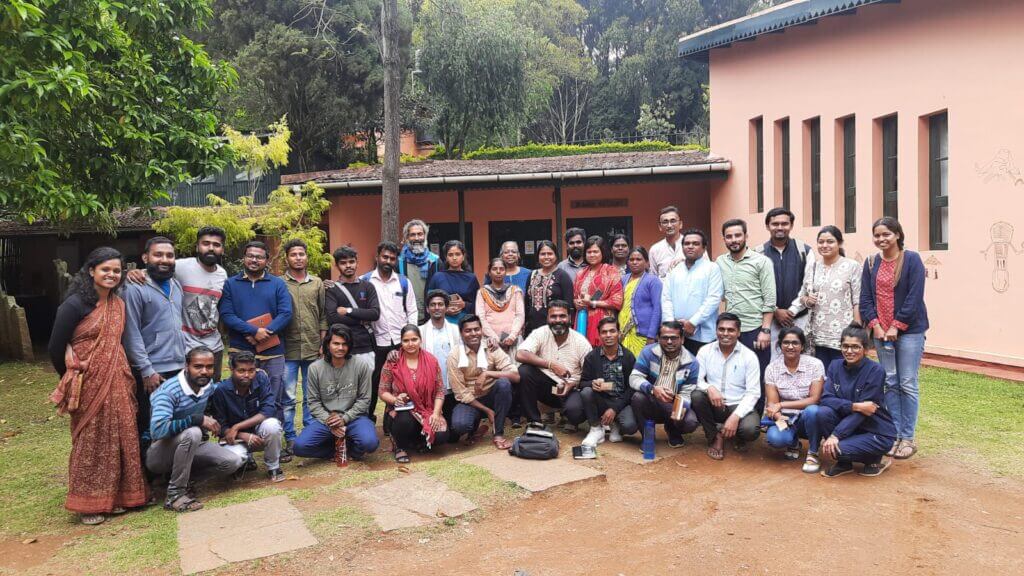
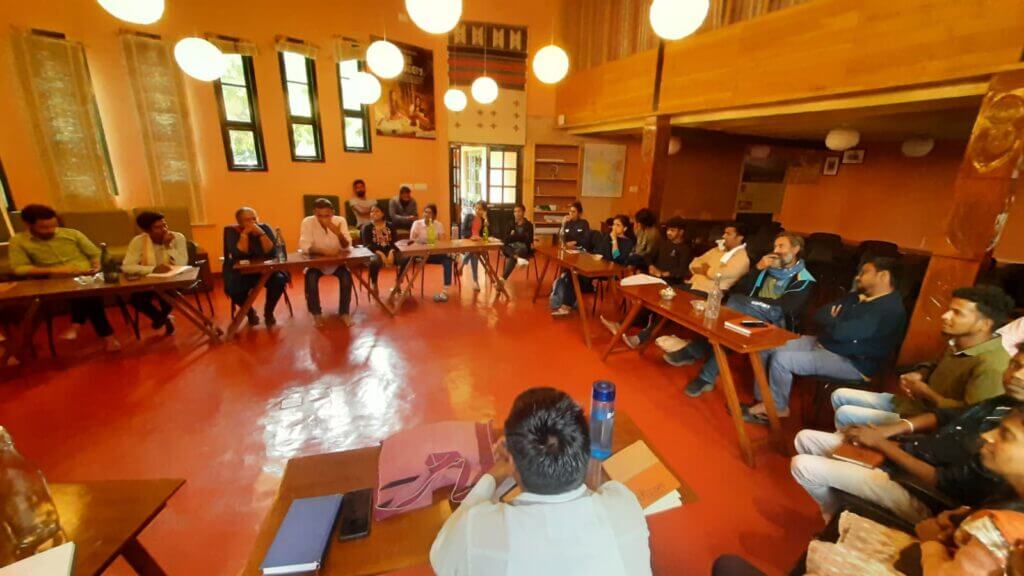
Members of their core team included Sri Mayasabdra, who has been engaged in relief, development and peacebuilding initiatives in Israel, Palestine, parts of North East Asia and other regions; and Biren Bhuta, who has brought this programme together since its inception. He has previously been the Chief of Corporate Social Responsibility in Tata Steel, and continues to serve on the board of Gram Vikas in Odisha, Bhasha Research and Publication Centre in Gujarat, and SeSTA in Assam.
During the three day visit, the students engaged with various teams and learnt about Keystone’s programmes. On the first day, the students were introduced to Keystone’s work during the last three decades in the landscape, along with the senior teams. They were engaged in group work and discussions around principles of economy, ecology and equity, especially in the context of Keystone’s efforts towards conservation, enterprise and livelihoods. The students were asked to interpret the principles to their context and talk about the various aspects that they, as leaders, would have to look into. The day ended with a lively campus tour and interactions.
On the second day, the team made a field visit to Aracode to observe some of the initiatives taken up by Keystone and Aadhimalai. They spent some time at Porivarai Community Foundation in Garkiyur to discuss the area’s history, ecological importance and diversity of forest and agricultural produce, community cultures and Porivarai’s own efforts at revitalising craft and musical traditions. Robert Leo also joined the group, along with Jestin P. and Kranthi K. from Aadhimalai and facilitated the visit to Bangalapadigai Production Centre. The team heard about the different processing units, varieties of Non-Timber Forest Produce and methods of value addition from the ladies who work there. After a delicious locally cooked millet meal with bird’s eye chilli chutney and jackfruit fry, the team had a short walk along the coffee fields. The third day was planned as a gathering and group discussion between the Disom students leaders and Nilgiri community leaders and research fellows. The morning was spent in discussing various issues around rights, ethics of working with communities, land issues and struggles of marginalised communities in each of their own contexts and local scenarios. All participants expressed their gratitude for the interesting conversations and experiences towards the end of the interaction and sang songs to express a shared solidarity over the short visit of three days.

